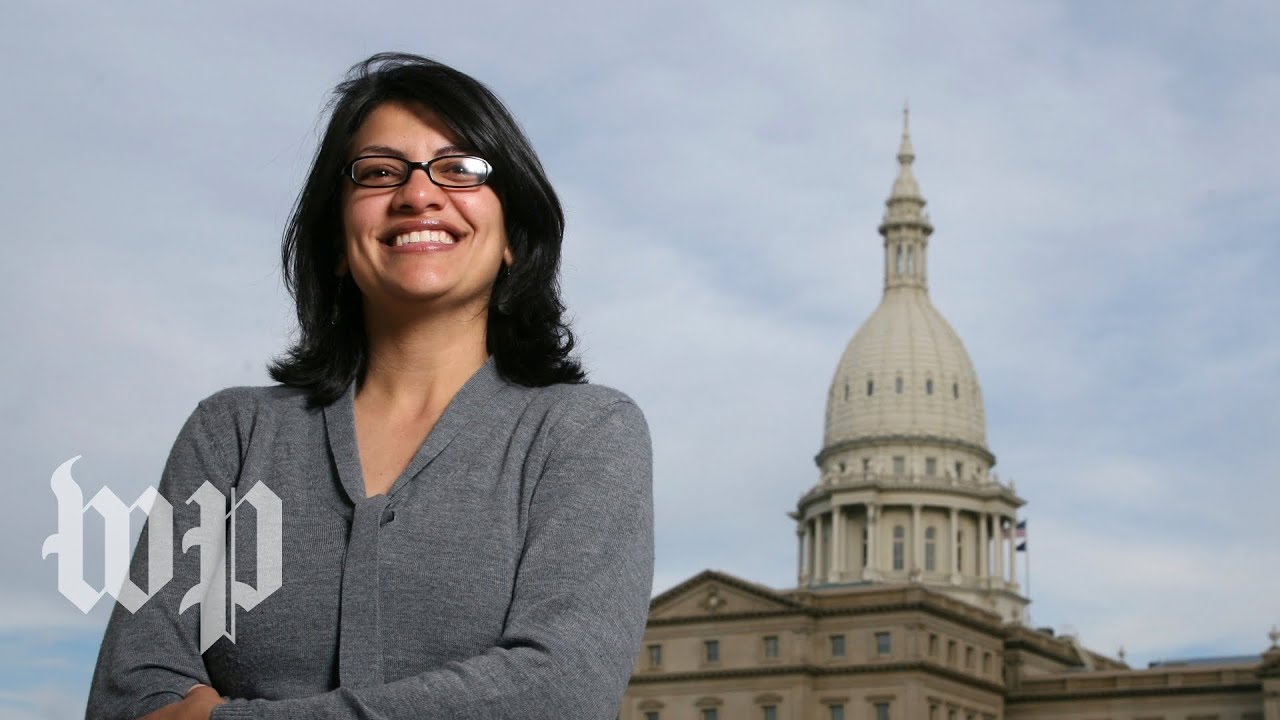With all the stories on the Internet it can be difficult to always stay in the know. To help, we’ve searched the web for interesting pieces of news, videos and tips to help you start off your week on the right foot.
1. Hijabi woman snaps selfie next to anti-Muslim protestors

Jurgen Augusteyns/his website
Last weekend Antwerp, Belgium hosted the third annual Muslim Expo, a festival that celebrates Muslim culture.
During the weekend roughly 40 members of Vlaams Belang, a right-winged Belgian political party, arrived to protest the event. The group held signs with things such as, “No headscarves,” “No mosques” and “Stop Islam” written on them.
Zakia Belkhiri, a young Muslim woman, decided to take a selfie with the protestors. As she snapped her own photo, her moment was captured by photographer Jurgen Augusteyns. His photo of Zakia quickly went viral after being reported on by Vice.
Editor’s note: Pictures of anti-Semitic remarks tweeted by Zakia Belkhiri from 2012 have been shared throughout social media. Her picture was added to the roundup because her selfie sparked a number of other selfies and it made the sites of some large news outlets. While the tweet’s date doesn’t excuse the comment she made, one might hope that her opinion has changed with time.
2. Huffpost Religion talks women and leadership
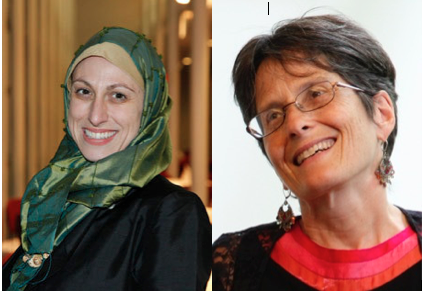
Celene Ibrahim, M. Div. Rabbi Sharon Cohen Anisfeld
Huffpost Religion’s monthy “Can We Talk?” features a conversation between Celene Ibrahim, M. Div. and Rabbi Sharon Cohen Anisfeld. The pair’s exchange is in response to the question: What are the most pressing issues of women and leadership across your religious tradition? Which ones are currently most resonant for you? Which are the frontiers that most compel you at this time—ritual participation, communal leadership, religious law—and why? How is feminism a part of your own religious life and experience of faith?
3. College student talks hijab confidence, courage
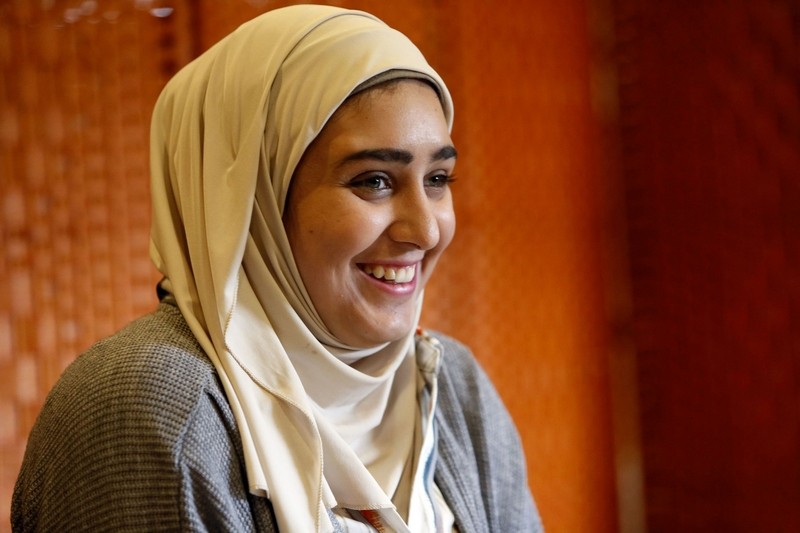
Marah Jadalla, a 19-year-old College of Charleston student, talks about her choice to wear a hijab. Michael Wiser/The Post and Courier
“The hijab,” 19-year-old Marah Jadalla, said, “is my armor.”
The marketing and studio arts major at the College of Charleston, told The Post and Courier, she started wearing the hijab two years ago as an act of devotion to God and her faith. The news outlet recently published a piece about Jadalla’s relationship with Islam and why she decided to start wearing the hijab.
Jadalla told The Post and Courier that she first decided to wear the hijab publicly the summer after she graduated from high school for an Eid celebration dinner.
“Everybody loved it,” she said. “My grandma and my grandpa, they got so happy. So I was like, ‘I really love this,’ and I felt better as a person about myself.”
[tweetthis]”The hijab,” 19-year-old Marah Jadalla, said, “is my armor.”[/tweetthis]
4. Why (Muslim) Sex Ed Can’t Wait Until Marriage
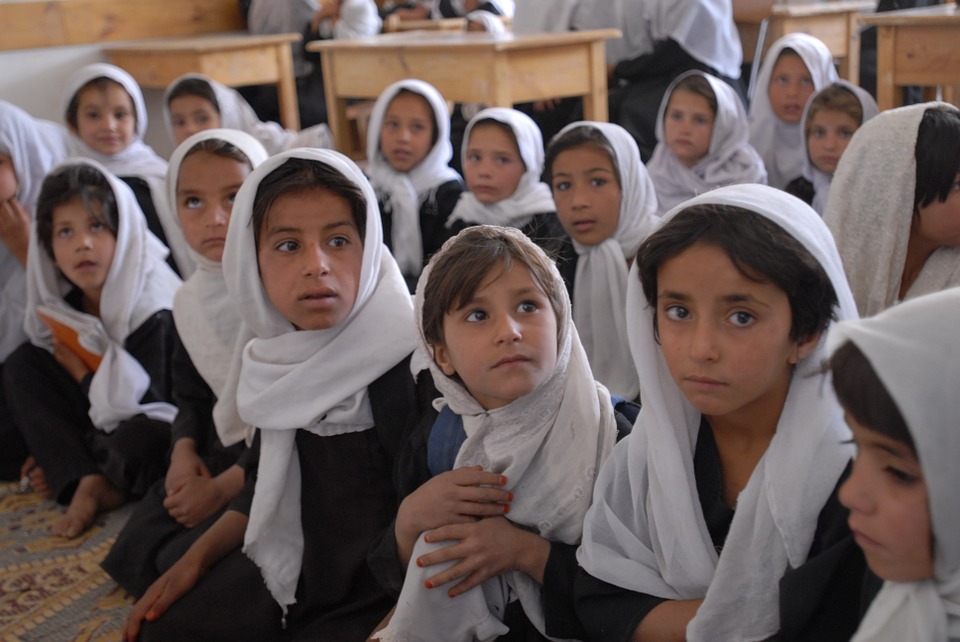
Zoha Qamar, a student at Columbia University, writes her column about the lack of education Muslim children get about sexual health. Referencing Sobia Ali Faisal’s, of the University of Windsor, findings, Qamar uses the research study’s that exploration of “the relationship between North America’s Muslim youth and sex” much of which “included their stance and access to sexual education.”
Qamar sites that the motivation for Ali Faisal’s research was “the negative sexual self-judgment that then anchors as the basis for unhealthy sexual relationships, particularly concerning major issues, such as consent and abuse.”
“Cultural taboos cannot trump the risks that come with leaving kids in the dark,” Qamar writes. “Whether or not sexual activity should be withheld for after marriage is up for debate, but sexual education should be non-negotiable; it simply cannot wait, and must not.”
[tweetthis]”Cultural taboos cannot trump the risks that come with leaving kids in the dark,” says Zoha Qamar, a student at Columbia University.[/tweetthis]
5. U.S. Immigration sued over “Unlawed Delay” of Citizenship Application of Muslims
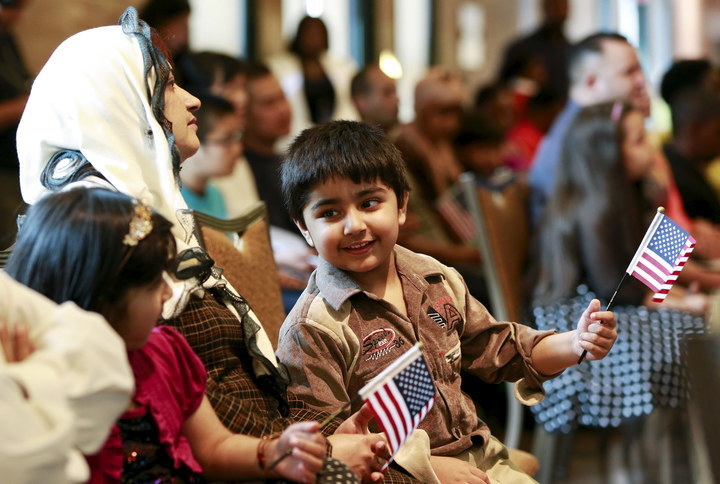
Fiza Kamran, whose parents immigrated from Pakistan, waves a flag during a citizenship ceremony at the Bronx Zoo in New York May 26, 2015. Shannon Stapleton/Reuters
According to a lawsuit filed Wednesday in St. Louis, the United States Citizenship and Immigration Services (USCIS) unlawfully delays citizenship applications of Muslim immigrants.
Filed by Hacking Law Practice on behalf of 13 Muslim immigrants in Missouri, BuzzFeed News reports that the lawsuit alleges that the “USCIS has applied different rules under a policy known as the Controlled Application Review and Resolution Program (CARRP), which has resulted in the agency refusing to adjudicate Plaintiffs’ applications.”
“What my clients want is simple: they want what the law provides,” said Jim Hacking, the case’s lead attorney. “They want to be vetted like everyone else, and treated like every other person applying for citizenship. The USCIS has unilaterally taken it on themselves to hold Muslims to a higher scrutiny. They find themselves in this black hole where they can’t get out. There’s no recourse for them.”
[tweetthis]A lawsuit has been filed on the behalf of 13 Muslim immigrants against U.S. Immigration. [/tweetthis]
6. Young Muslim American women work to break political molds
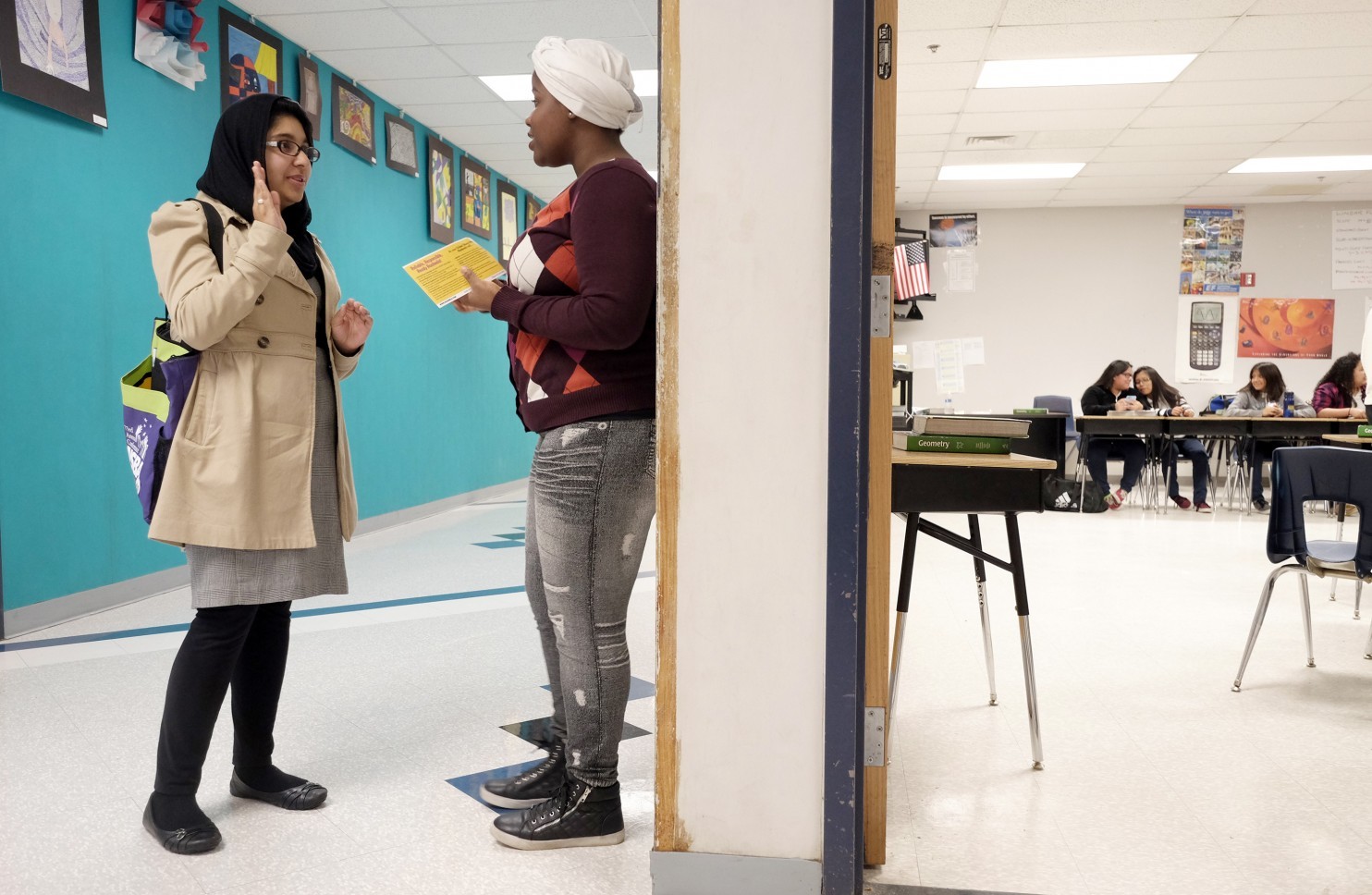
Raaheela Ahmed, 22, speaks with Lindsey Adva, 17, at Northwestern High School in Hyattsville, Md. Ahmed, who is running for a seat on the Prince George’s County Board of Education, is one of several young Muslim women getting involved in local politics. Bonnie Jo Mount/The Washington Post
A group of young Muslim women, all children of immigrants, are entering electoral politics in the Maryland suburbs. According to The Washington Post the women say they feel empowered by their American upbringing, the encouragement of male mentors and the need to combat the anti-Muslim rhetoric that has surrounded the 2016 presidential runnings.
“I was reluctant at first, but Hamza [Hamza Khan, a Democratic activist who chairs the Muslim Democratic Club of Montgomery County] urged me to run, and it became more than a seat on a committee,” Bukhari-Rizvi, a Pakistani American, told the Post. “We have never been given a voice before, but I’m part of a new crop of Muslim American women who are well-educated and well-spoken. We can help combat Islamophobia, and we can carve out a future for others. If no one gives us the mantle, we will take it.”
[tweetthis]”If no one gives us the mantle, we will take it,” said Bukhari-Rizvi, a Pakistani American who ran for the Montgomery County Democratic Central Committee.[/tweetthis]
[tweetthis]altM’s weekly roundup of news[/tweetthis]
This list was curated by Kaitlin Montgomery, altM News Editor





